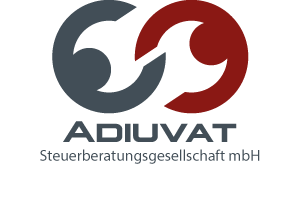Limited – deductible special expenses – Part II
Dieser Beitrag ist auch verfügbar auf:
2.1 Maintenance payments (Section 10 (1a) No. 1 EStG):
Maintenance payments to the divorced or permanently separated spouse who is domiciled or habitually resident in Germany may be deducted on application up to a maximum of 13,805 euros – increased, if applicable, by health/nursing care insurance contributions paid for the spouse. A prerequisite is that the recipient of the benefits agrees to the request, because as a result of the deduction for the payer, taxation is applied to the recipient. The consent is valid for the respective assessment period and for future years; it can only be withdrawn before the beginning of a year.
2.2 Childcare costs (Section 10 (1) No. 5 EStG):3
Expenses for services for the care of children (e.g. kindergarten, day nursery, childminder or au pair) can be claimed as special expenses. Beneficiary is 2⁄3 of the costs attributable to the care, up to a maximum of 4,000 euros per child per year; there must be an invoice, service or Employment contract, fee notice, etc. must be available and payment must be made to the account of the provider of the service. Children up to the age of 14 are taken into account or if children are unable to support themselves due to a physical, mental or psychological disability that occurred before the age of 25.
2.3 Vocational training costs (Section 10 (1) No. 7 EStG):
Expenses for first-time vocational training or first-time studies (travel expenses, learning materials, tuition fees, etc.) can be claimed up to an annual amount of 6,000 euros (for each spouse in the case of joint assessment). Under current law, an (unlimited) deduction of income-related expenses for initial training is only possible for measures within the scope of a (training) employment relationship.
2.4 School fees (Section 10 (1) No. 9 EStG):
30% of the school fees for the school education of one’s own children in recognized (private) schools in EU/EEA countries and in German schools abroad up to a maximum amount of 5,000 euros per child and parent couple can be deducted as special expenses; however, expenses for accommodation, care and meals are not eligible.
2.5 Grants for the promotion of tax-privileged purposes (Section 10b (1) EStG):
Donations to charitable, benevolent or ecclesiastical institutions in EU/EEA countries can be deducted as special expenses up to the amount of 20% of the total amount of income or the sum of sales and wages and salaries. Membership contributions to institutions are also eligible if they do not promote sports, local history, animal husbandry or other recreational activities. Grants exceeding these limits may be claimed in subsequent years within the limits of the maximum amounts.
Donations to the assets to be preserved (asset pool) of a beneficiary foundation can also be deducted up to a total amount of EUR 1 million (spouse: EUR 2 million) within a ten-year period (see Sec. 10b (1a) EStG). Confirmations of donations received from the recipient must be kept for a maximum of one year after the tax assessment has been announced and must be presented when requested by the tax office. For “small donations” of up to 200 euros or for donations for disaster situations, a deposit or transfer slip is usually sufficient.
2.6 Membership fees and donations to political parties (Section 34g EStG, Section 10b (2) EStG):
Contributions to political parties are directly deducted from income tax at 50% of the expenses; however, this only applies to contributions of up to EUR 1,650 (for married couples: EUR 3,300) in a calendar year. Amounts in excess of this can in turn be claimed as special expenses up to a maximum of 1,650 euros (for married couples: 3,300 euros). A corresponding deduction from income tax applies to membership fees and donations to independent voters’ associations; however, a special expenses deduction for amounts exceeding this is excluded here.
2.7 For the consideration of pension expenses, see the attachment in our information letter.
A) Newsletter order
Always be well informed, do not miss any news! With our newsletter service you will always receive current information about our office and this conveniently by e-mail (e.g. changed opening hours, etc.). Of course, you can easily unsubscribe from the newsletter at any time. At the end of each newsletter you will find a corresponding unsubscribe link. To do this, simply enter your e-mail address…
